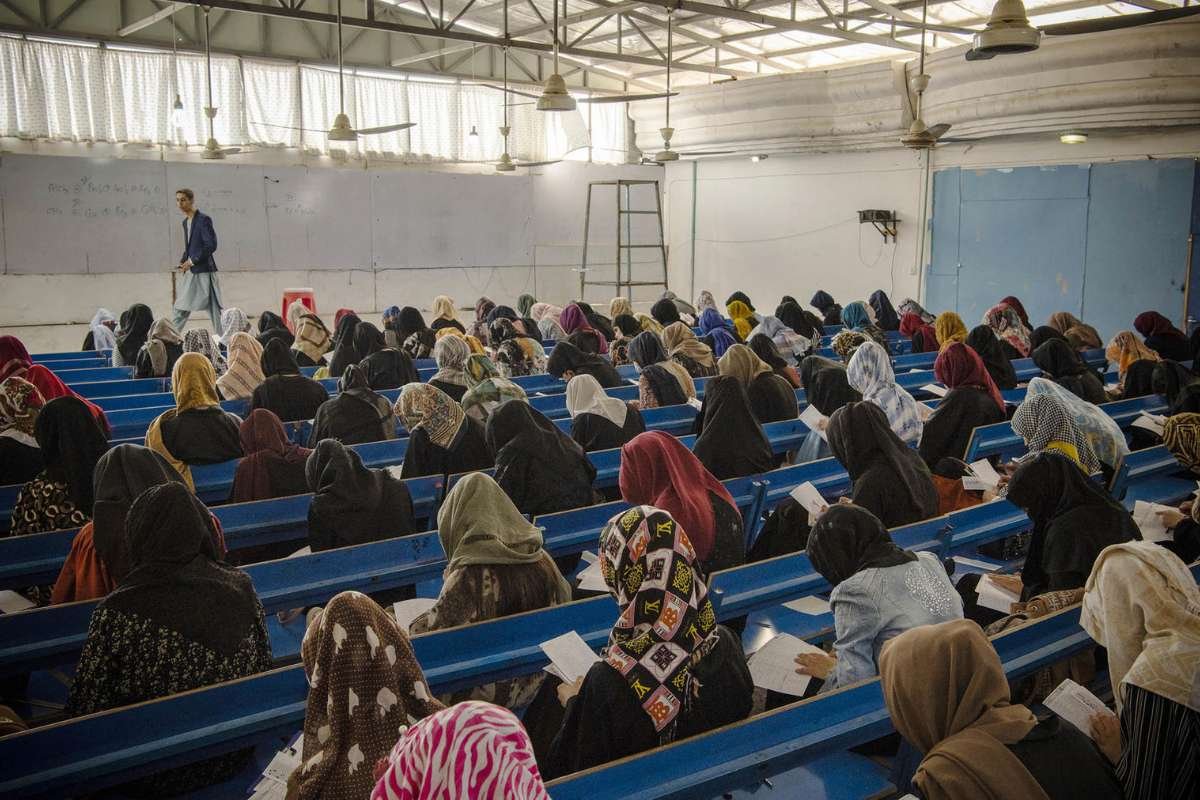Key Points:
- Taliban bans 679 textbooks and 18 subjects.
- Women’s and foreign-authored books targeted.
- Academic freedom at risk.
The Taliban government has ordered a sweeping Taliban University Textbook Ban on 679 textbooks across public and private universities in Afghanistan, citing incompatibility with its interpretation of Islamic law. The directive, issued at the start of the autumn semester, was based on a review carried out by clerics and education officials who assessed the books on cultural, ideological, religious, and scientific grounds. Universities have been instructed to immediately stop teaching, referencing, or citing the blacklisted material.
Alongside the Taliban University Textbook Ban, 18 academic subjects have been completely removed from higher education curricula. These include constitutional law, political systems, gender and development studies, human rights, democracy, philosophy, and courses related to religion and women’s participation in communication. A further 201 subjects have been flagged for review, raising fears that Afghanistan’s higher education system could face severe gaps in core academic fields.
Women’s Works and Foreign Publications Targeted
The crackdown extends beyond subject matter, as the Taliban has also banned books authored by women from university curricula. Around 140 of the blacklisted titles were written by female authors, including scientific works unrelated to politics or ideology. Texts such as Safety in the Chemical Laboratory have been removed, underscoring the breadth of the ban.
In addition, more than 300 of the banned books are publications from Iran or works by Iranian authors. Taliban officials claim the move is intended to prevent “foreign influence” in Afghan academic spaces. The ban affects faculties of law, political science, journalism, social sciences, media studies, and philosophy, with key texts such as Globalization: A Critical Introduction and History of Western Philosophy now off-limits.
Growing Concerns Over Academic Freedom
The Taliban University Textbook Ban has sparked alarm among Afghan academics, who warn that universities could be “paralysed” without access to widely used and internationally recognized academic texts. With no replacements currently available, professors fear students will face severe limitations in developing a comprehensive education, especially in disciplines like law, sociology, and political science.
The new restrictions deepen concerns over the Taliban’s broader policies on education. Since returning to power, the group has banned girls from attending school beyond grade six and restricted women’s access to higher education. Entire programs, such as midwifery courses, have been discontinued, and now even the presence of women’s scholarship in textbooks has been erased.
While Taliban officials insist their actions are aimed at aligning education with Afghan culture and Islamic principles, critics argue the Taliban University Textbook Ban represents systemic censorship and a deliberate silencing of women’s voices in academia. Observers warn that the bans not only undermine academic freedom but also risk isolating Afghanistan’s education system from global knowledge and progress.
Visit more of our news! CIO Women Magazine.









